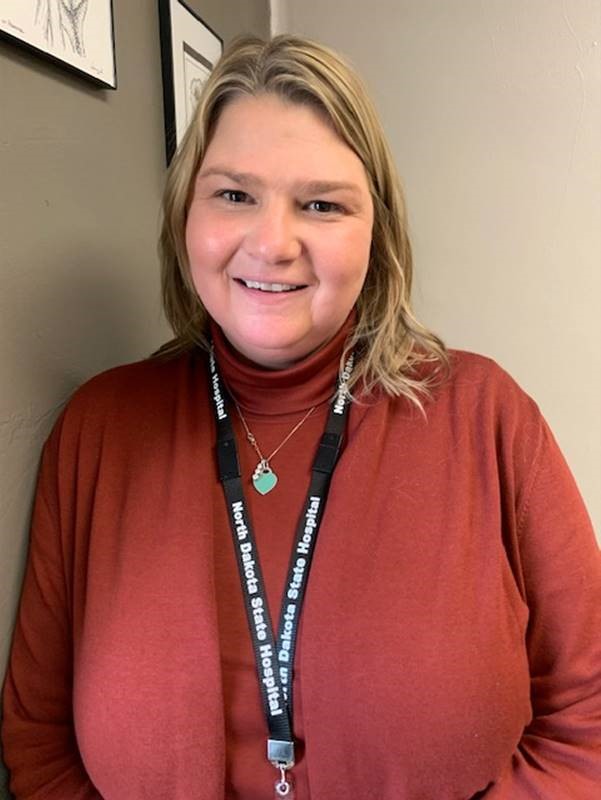
JAMESTOWN, N.D. (NewsDakota.com) – The North Dakota State Hospital in Jamestown has hired Beth Satrom as its director of nursing.
In her role, she will oversee the hospital’s nursing team that provides specialty care to individuals with severe, complex and persistent mental illnesses and substance use disorders or other co-occurring diagnoses. Satrom will also lead high-impact initiatives supporting key operational strategies and patient-focused outcomes.
Satrom, a registered nurse, joins the State Hospital after nearly 15 years at Essentia Health in Fargo where she worked in various positions including direct patient care, nursing leadership and strategic planning and management of virtual patient services. In her most recent position as multi-statewide director of telecare services, she led a team of over 250 front-line professionals who provided virtual scheduling, patient access, nurse triage services and referral management across the patient care system.
“We are excited to welcome Beth to the North Dakota State Hospital,” said Dr. Rosalie Etherington, the hospital’s superintendent. “She brings a unique blend of experience to her new role that includes providing patient care, leading a large group of team members in a health care system and implementing innovative patient-centered initiatives that put the needs of patients and their health at the forefront.”
Satrom earned a master’s degree in nursing administration from the University of Mary in Bismarck, N.D. and degrees in nursing from the Minnesota State Community and Technical College in Fergus Falls, Minn. and general studies from the University of North Dakota.
The North Dakota State Hospital, nationally accredited by The Joint Commission since 1956, provides specialized inpatient psychiatric and rehabilitation services and is the safety net for people whose behavioral health needs exceed community resources. It serves as the only psychiatric hospital for the Jamestown and Devils Lake regions. The hospital also provides substance use disorder treatment services through its Tompkins Rehabilitation Center and evaluation and treatment services for sexually dangerous individuals.
It works with the department’s eight regional human service centers and other providers to help patients transition to community-based outpatient treatment and recovery support services.
